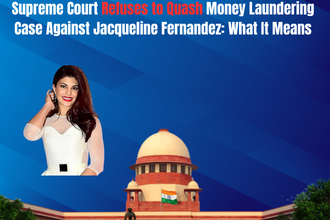In a significant development aimed at safeguarding the rights of Indian citizens abroad, the Delhi High Court on May 2, 2025, directed the Ministry of External Affairs (MEA) and the Indian Consulate in Indonesia to extend urgent legal assistance and diplomatic support to three Indian nationals who have been sentenced to death in Indonesia for alleged drug trafficking.
The order was passed by Justice Sachin Datta on a petition filed by the wives of the three individuals – Raju Muthukumaran, Selvadurai Dinakaran, and Govindasamy Vimalkandhan – who were convicted by an Indonesian court in July 2024 for alleged possession and smuggling of crystal methamphetamine.
Urgent Appeal for Legal Aid and Diplomatic Intervention
The petitioners – the wives of the convicts – approached the High Court seeking immediate intervention, citing a seven-day limitation period for filing appeals in Indonesian courts. They informed the Court that they had only received a copy of the judgment on April 29, 2025, giving them very little time to organize a defense or initiate appellate proceedings in a foreign jurisdiction.
Highlighting their financial constraints and lack of legal access, the petitioners pleaded for urgent directions to the Indian authorities to assist their husbands, who were employed at a shipyard company in Indonesia before their arrest.
Recognizing the urgency and gravity of the situation, Justice Datta issued the following directives:
Key Directions Issued by the Delhi High Court
- To the Indian Consulate in Indonesia:
- Ensure that the three Indian nationals are provided with adequate legal representation to pursue all available appellate remedies.
- Facilitate communication between the convicted individuals and their families in India to ensure transparency and emotional support during this critical time.
- To the Ministry of External Affairs (MEA):
- Take diplomatic steps with the Indonesian Government for the protection of the Indian nationals, leveraging any applicable international conventions or bilateral agreements that India may have with Indonesia.
These directions were issued as part of the interim relief granted by the Court, with the next hearing scheduled for May 6, 2025.
Importance of Legal Representation Abroad
The ruling underscores the critical role of Indian diplomatic missions in safeguarding the rights of Indian nationals facing criminal prosecution overseas, especially in capital punishment cases. Legal experts note that the death penalty for drug-related offenses is a strict but common penalty in Southeast Asian countries, including Indonesia, which follows a zero-tolerance policy against narcotics.
International human rights bodies and Indian courts have repeatedly emphasized the importance of consular access and legal aid for Indian nationals imprisoned abroad. The Vienna Convention on Consular Relations, to which both India and Indonesia are parties, mandates that foreign nationals have the right to contact their consulate upon arrest and to receive assistance in legal matters.
MEA’s Role and Past Precedents
The Ministry of External Affairs has a dedicated wing for dealing with issues concerning Indians detained or imprisoned abroad. In similar cases in the past, the Indian government has intervened to negotiate reprieves, seek clemency, or offer legal assistance through local lawyers appointed by the Indian embassies.
The Delhi High Court’s order reaffirms the constitutional responsibility of the Indian state to protect its citizens and prevent any miscarriage of justice abroad, especially when basic legal rights like the right to appeal or legal aid are at stake.
Drug Laws in Indonesia: A Cautionary Tale
Indonesia is known for having some of the world’s toughest drug laws, with capital punishment applicable even for possession of narcotics above certain thresholds. Tourists and migrant workers have often found themselves at risk due to stringent enforcement measures and language barriers that impede fair trials.
The three Indian nationals in this case were reportedly arrested in July 2024 and swiftly tried, leading to convictions and death sentences. The Delhi High Court’s intervention comes as a crucial effort to ensure they receive fair treatment under Indonesian law and that the Indian government fulfills its obligations under international law.
Legal Representation and Human Rights Advocacy
Advocate S. Parthasarthi appeared for the petitioners, while Ashish Dixit, Central Government Standing Counsel, represented the Union of India.
The matter has also drawn attention from human rights organizations and advocates who stress the importance of cross-border legal aid mechanisms and consular responsiveness. They argue that, in death penalty cases, even a delay of a few days can mean the difference between life and death.
What Lies Ahead?
The case is now listed for further hearing on May 6, 2025, when the Court is expected to assess the response of the MEA and Consulate. The immediate concern remains the filing of appeals within the extremely limited time available under Indonesian law.
Depending on the outcome of the appeal, the Indian government may also explore the possibility of seeking clemency or sentence commutation, as it has done in other high-profile international cases.
Conclusion
The Delhi High Court’s order in N. Deepika & Ors v. Union of India & Anr is a landmark example of judicial activism aimed at protecting the rights of Indian citizens facing the harshest penalties abroad. It also serves as a reminder of the vital role of consular support and legal assistance in ensuring access to justice, especially when language, geography, and legal systems become barriers.
As the matter develops, the spotlight remains on the Indian government’s response, the Indonesian legal system’s fairness, and the broader issues of transnational legal aid and human rights protections in capital punishment cases.


